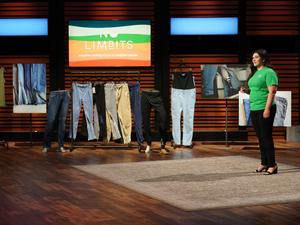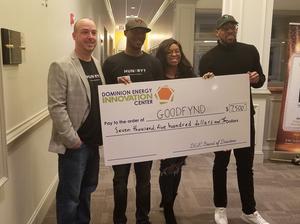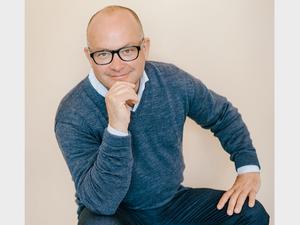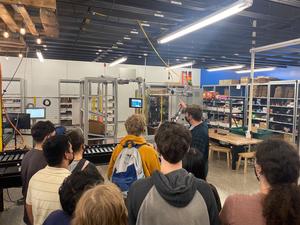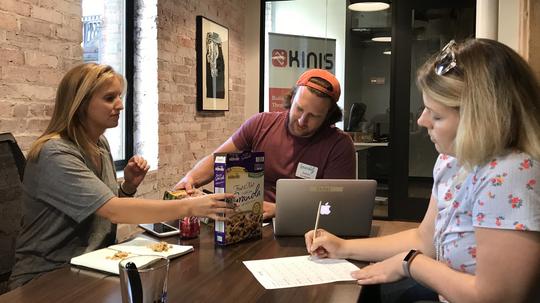
Imagine this: You’re standing in the soap aisle, wondering whether to shell out an extra $2 for brand-name body wash or just go with the generic store version. The name brand is tried and true, but is it really any different from its less flashy cousin?
It’s at that intersection between quality and cost that Richmond startup Brandefy is weighing in with a mobile app that offers consumers comparisons of generic and brand-name products.
“We’re no longer the coupon-clipping generation,” said Elisabeth Klughardt, Brandefy’s part-time logistics coordinator. “This is the way we do it.”
The first seeds of Brandefy were planted around 2016, when founder Meg Pryde was working in the consumer packaged goods sector and witnessed how many brand-name products were manufactured the same as the generics — sometimes even on the same machines. But without a backstage view, it could be difficult to tell when a brand had actually developed a superior product.
After a decision to purchase generic cleaning wipes instead of Clorox resulted in a small-scale household fiasco, Pryde was determined to tackle the problem head on.
In December 2016, she and Carolyn Kochard, now Brandefy’s head of content and operations, launched a blog called Store-Brand Smarty that reviewed and compared generic and brand-name versions of products.
The blog's booming audience “proved to the tech people that it was something worth developing,” Pryde said. But it wasn't until she began studying at the University of Virginia’s Darden School of Business that the Brandefy concept really took off.
Research and development work revealed that people preferred to use an app while shopping rather than scrolling through a website in a browser, and a series of pitch competitions helped Pryde, along with fellow Darden student James Graham, refine the idea into the platform that exists today.
Launched on iOS this summer, Brandefy is aiming to provide 1,000 product comparisons, derived from ingredient match calculations and user reviews, by the end of the year. During its time in the 2018 Lighthouse Labs incubator, the team is also focusing on increasing the app’s searchability.
“Over the course of a year, you’d really be able to save an amount of money that would be meaningful.”
Right now, many of the product comparisons are conducted in house, at the 1717 Innovation Center. The Brandefy team assesses elements including packaging, smell, appearance and taste, evaluating how similar each pair of products is to one another and asking testers to rank whether they would switch to the generic version. In calculating an overall comparison score, different weights are also assigned to different characteristics – taste similarities are more important for food products than personal care products, for example.
So far, some of the highest-ranked generic products have been Aldi mayonnaise and Target peanut butter, body wash and jelly.
“We want to identify the products that would appeal to the most people,” said Graham, who now serves as Brandefy’s head of technological development. With that aim in mind, the team is focusing on generics from Aldi, which over the past few years has significantly increased its footprint in the Richmond region. The startup also runs a reviewers’ club that it hopes to expand to bring more opinions to its ratings.
Currently, about 2,000 people are using the app. Brandefy received several other boosts this summer when it closed an angel funding round June 30 and was chosen for the Lighthouse Labs incubator.
While ease of use is an important feature of the app, the team is quick to point out that it actually does save money. A “30 for 30” exercise in which Kochard switched 30 brand-name purchases to generic versions that received a similarity rating of 80 percent or above saved $45 in a month. When brand names were switched to generics with a similarity rating of 65 to 70 percent, the savings rose to $80 per month.
“Over the course of a year,” Griffin said, “you’d really be able to save an amount of money that would be meaningful.”
